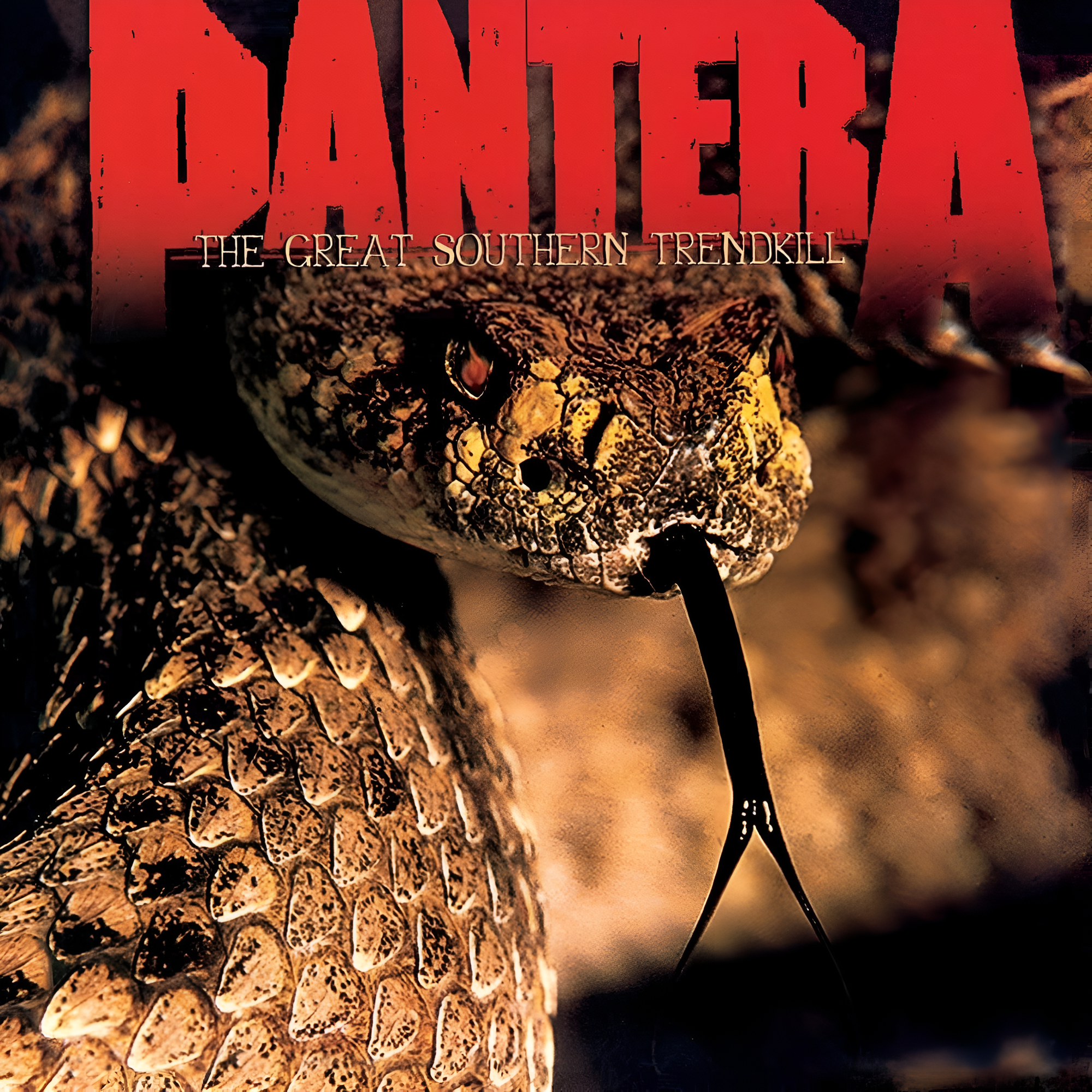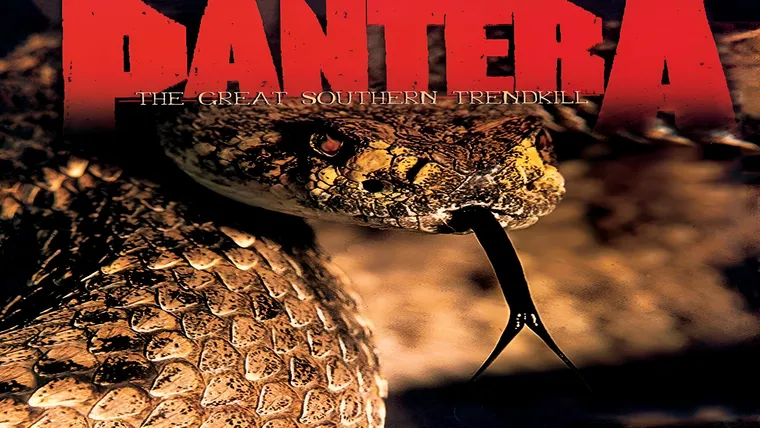
Released on May 7, 1996. The album begins not with a whisper, but a scream—“The Great Southern Trendkill” detonates like a lit fuse buried in sand, Phil Anselmo’s shriek ripping through the silence with animalistic intensity. It’s a violent invocation—furious, chaotic, and unrelenting. But beneath the sonic shrapnel lies something deeper: a lament of cultural decay, personal demons, and Southern identity, screamed through clenched teeth and broken mirrors.
Then comes “War Nerve,” a manifesto carved in rust and bile. Dimebag Darrell’s riffwork is punishing yet precise, a display of controlled savagery that anchors Anselmo’s most venomous lyrical performance. This is not rebellion for show—this is spiritual arson, aimed at the hypocrisy of society and the industry alike. It’s both a declaration of war and a ritual of purification through fire.
“Drag the Waters” slows the pace but deepens the groove, dripping with swampy menace and mistrust. The track slithers more than it marches, its downtuned chug and eerie leads evoking a sense of paranoia and grit. It’s less an assault and more a slow drowning—an exploration of betrayal and self-defense disguised as swagger.
Thematically, The Great Southern Trendkill is Pantera’s darkest hour and their most introspective. Where earlier albums glorified strength and resilience, here the focus is on survival amidst personal collapse. It’s not just about fighting the world—it’s about fighting yourself, your addictions, your anger, and your past. The South is both setting and metaphor—a land of pride and pain, where tradition burns alongside trauma.
Of Noise and Necromancy: Forging Beauty in Brutality
The album’s midpoint introduces some of its most unexpected textures. “10’s” is a slow-burning elegy, bluesy and haunted. It’s a rare moment of vulnerability, carried by Dimebag’s ghostly bends and Rex Brown’s mournful bass. This isn’t Pantera dialing it down—it’s them turning inward. The track aches with regret and unresolved longing, serving as a bitter palette cleanser before the onslaught resumes.
“Suicide Note Pt. I” and “Pt. II” form a diptych of despair and destruction. The first is quiet, acoustic, and chilling—like the final thoughts of someone too exhausted to scream. The second is a violent resurrection, a full-throttle blitz of panic, breakdown, and backlash. Together, they form the emotional and structural centerpiece of the record—a duality of fragility and fury that encapsulates the album’s core.
“Living Through Me (Hell’s Wrath)” and “Floods” continue the exploration of addiction and consequence. “Floods,” in particular, is Dimebag’s magnum opus—a slow, building epic with a solo that rises like steam from scorched earth. There’s a Biblical weight to it, a sense of watching the world drown from a mountaintop of guilt and clarity.
Elegy of the Southern Soul: Death, Decay, and Deliverance
By the time “Sandblasted Skin (Reprise)” closes the album, the listener is left battered, not by sheer volume alone, but by the emotional depth and thematic density of the record. It ends not with redemption, but with exhaustion—a final scream echoing through the dust and bones of the American South.
The production—handled by Terry Date and the band—perfectly matches the content. It’s jagged and harsh, unpolished in ways that feel intentional. The guitar tone is scorched earth; the drums are thunderclaps in a collapsing sky. The mix emphasizes the chaos without ever descending into mud. There’s clarity in the madness, a sense that every ounce of aggression is grounded in something painfully real.
The Great Southern Trendkill is not just an album—it’s a wound, cauterized by distortion and howling honesty. It is Pantera’s most dangerous and personal record, one that refuses to sanitize pain or decorate rage. This is the sound of a band at war with the world and themselves—and somehow finding a twisted sort of grace in the rubble.
Final Verdict: 9/10
The Great Southern Trendkill is Pantera’s most emotionally potent and thematically fearless album. It’s not their most accessible work, but it is arguably their most human. For those willing to dive into the darkness, it offers more than aggression—it offers revelation.
Standout Tracks:
The Great Southern Trendkill
Drag the Waters
Suicide Note Pt. I & II
10’s
Floods
This isn’t just groove metal—it’s a sermon delivered from a pulpit made of bones and amplifiers. The South is calling, and it sounds like thunder.

